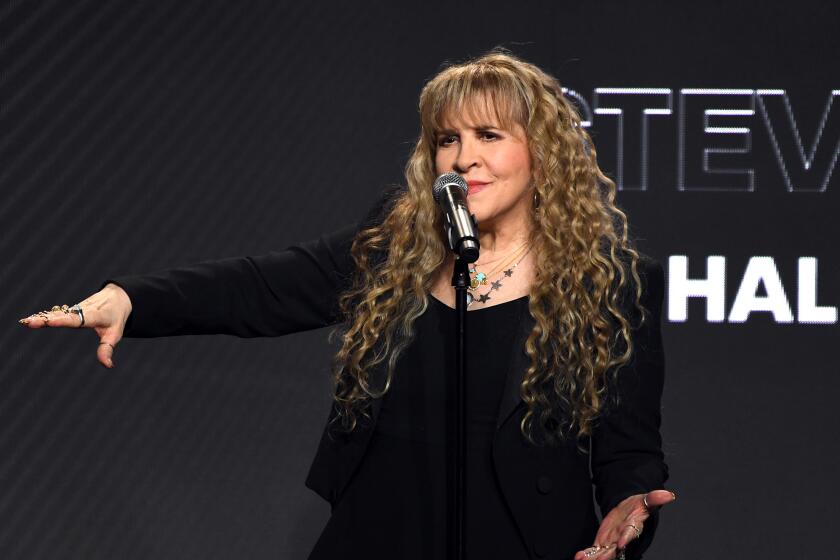A Sword Over Web Radio
- Share via
Radio stations sound the same from San Diego to Schenectady. The homogenization began in 1996 when Congress lifted the cap on the number of stations a single network could own. About the only break from the three or four cookie-cut Ashanti/N’Sync/Clint Black playlist variations comes from a growing number of independent “Webcasters” who stream colorful and original programming on the Internet.
Congress may wind up shutting them down, though, if it allows the U.S. Copyright Office to levy draconian “sound recording performance royalties” on enterprises transmitting over the Internet. The proposed fee--a bit more than 1/10th of a cent per song per listener--may not sound like much, but when you realize that most Webcasters have zippo revenues and that they would have to pay the fee retroactively since 1998, the truly crippling cost becomes clear. Take a mid-size independent Webcaster--say, two or three people working out of a home office or dorm room. Their average audience may have been 1,000 listeners over the past three years. Their bill for retroactive royalties would be $525,600.
Currently, over-the-air broadcasters have to hand over about 4% of their revenues as “artist performance royalties” that go to songwriters and music publishers. American broadcasters, however, have never been required to pay a sound recording fee because more than half a century ago they persuaded Congress that record labels are already well compensated through the promotional benefit of having their music played. The same logic should apply to Webcasters. They already have to pay 4% of their revenue in artist royalties. It’s not fair to stick them with a second fee because, if anything, they provide better promotion than traditional broadcasters by showing the album they are playing so listeners can purchase it with the click of a mouse.
The Recording Industry Assn. of America has argued that the additional fee would help compensate for any damage that computer geeks might cause by pirating music broadcast over the Internet. The truth is that in order to stream music, Webcasters have to degrade its sound quality to the point that it is unattractive to thieves.
So, the only way to explain the fee is as an unwarranted windfall for the recording industry--but that doesn’t fly either, because the fee would promptly drive the entrepreneurs who are supposed to pay it out of business. A misguided 1998 law created the problem by requiring the Copyright Office to impose a new fee. Now federal legislators need to revise the dictate, making clear that they never intended it to demolish diversity.
More to Read
The biggest entertainment stories
Get our big stories about Hollywood, film, television, music, arts, culture and more right in your inbox as soon as they publish.
You may occasionally receive promotional content from the Los Angeles Times.










